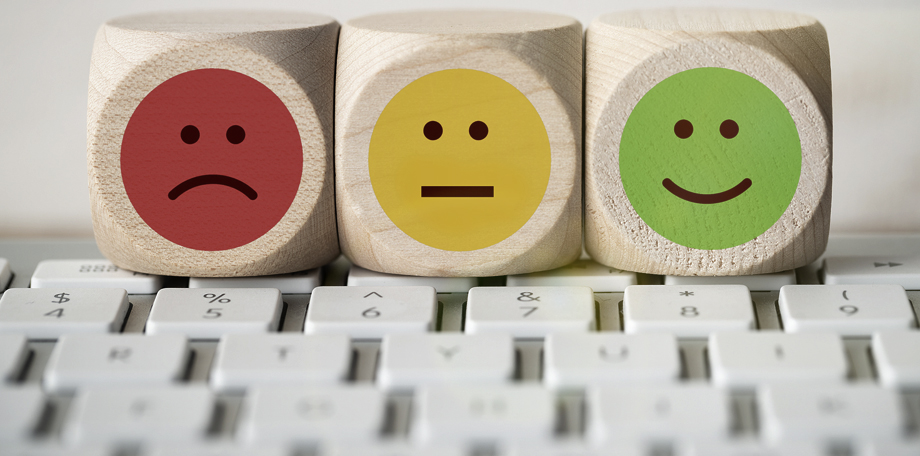When we think of fitness, we think of exercise, diet and getting enough sleep. These are certainly great for our physical fitness, but what do you do for your mental fitness on a daily basis?
As a country, it’s an area we are sorely lacking in. According to the National Alliance on Mental Illness, more than 40 million adults in the U.S. (roughly 19% of the population) have an anxiety disorder. These disorders are highly treatable, but only 36.9% of those suffering receive treatment, says the Anxiety and Depression Association of America.
The pandemic certainly hasn’t helped. non-profit organization Mind Share Partners conducted a study last year that found the mental health of 44% of respondents had declined since the outbreak of Covid-19, including 40.5% of C-level employees. But despite the growth in mental health struggles, mental wellness, in general, is still considered a taboo topic, especially at work.
The Link Between Mental Wellness And Productivity
Mental wellness is viewed as something very personal, managed separately from our work life. But that line is becoming blurred as organizations finally start to understand that mental wellness is key to productivity and performance at work. For years, companies have been obsessed with engagement scores, but at the core of engagement is mental wellness.
However, since mental wellness isn’t easily understood, it’s not often discussed in the mainstream. As an executive coach, I see many missed steps and ignorance when dealing with mental health issues in the workplace. People are suffering with anxiety, depression, trauma, sleeplessness, even PTSD, and that translates to performance and productivity issues at work.
What Leaders And Employees Can Do
I’ve recently been working with a high-performing executive who is facing the unthinkable at home: a terminally ill, young husband who is awaiting an organ transplant. Not only does this client work 60 to 80 hours a week in a high-stress job, she is now dealing with her husband’s care.
Her supervisor and human resources partner are not only aware of her situation, but they are also supportive of the integrative approach of leadership wellness coupled with executive coaching. Mental wellness is something I embed in every leadership coaching engagement because it is so fundamental to productivity and performance. There are a lot of employees experiencing emotional pain, and we’re not adequately talking about it at the office. Here’s how to start:
- Have one-on-one discussions with individuals. Leaders should give this conversation the same attention they would any crucial conversation with employees.
- Demonstrate an open environment by being vulnerable yourself. If you open the door with a conversation about your own personal struggles, that gives the employee a safe place to do the same.
- Foster more education in the workplace. Bring in speakers to host workshops, purchase self-help books for your team, offer paid mental health days and choose health insurance plans that have generous mental health coverage.
Many of us often experience the most pain at work, as we’re often on an emotional roller coaster. But few know that it’s possible to learn how to navigate your job without becoming triggered and experiencing those repetitive negative emotional states. When you can do that, you are improving your mental fitness.
Here are just a few ways you can build your mental fitness:
- Identify your mood state. Simply pausing and understanding what state you are in can help you better control your response.
- Practice deep diaphragmatic breathing when you start to feel triggered.
- Develop a mindfulness practice — like meditation or journaling — that you can turn to in times of stress.
- Exercise regularly to release pent-up stress and anxiety.
- Build your self-awareness. An executive coach can help you learn to recognize your blind spots which leads to a better picture of yourself and greater self-awareness.
Mental fitness is such a powerful driver of performance that serves both the individual and the organization. It actually increases engagement as well as retention. When people are burnt out and suffering from stress, their immediate thought process is “I need to get a new job.” But if they change jobs they often find themselves in the same situation. That’s because often the real solution involves changing themselves to build their mental fitness. When companies are willing to make investments into the mental wellness of their employees, the benefits are extended — it’s good for the individual and good for the company.
The Future Of Mental Health At Work
Employees should feel as if they can ask for help and feel secure doing so. The Affordable Care Act covers preventative services like mental health screenings at no cost, and it makes mental health services more accessible to smaller companies. Employers need to be open-minded, flexible and sensitive now more than ever before. We have a long way to go, but some companies are starting the conversation about mental health. They are making investments to create education and support programs, including counseling sessions, for their workers.
Thoughtful bosses understand that employees who have mental health struggles can excel with the right amount of support. Unfortunately, people with anxiety or depression are often skilled at concealing it. Suicide rates, depression, anxiety and drug use continue to be on the rise. So, there is still a lot of work to be done.
Increasing education and opening up the conversation are the first steps in reducing the stigma around mental health. But we can go farther. We can provide opportunities for both leaders and employees to hone and strengthen their cognitive capacity. Athletes train their bodies; executives should train their brains.
I anticipate the resources for mental health in the workplace will grow exponentially from where they are today. Once organizations understand the return on investment of mental fitness in performance, effectiveness, retention, capability and collaboration, they will work to partner with practitioners who can help their employees operate at a higher level. That happens by building emotional intelligence, self-awareness, mindfulness and resilience. The first step is having conversations about mental health at work and creating an environment where employees do not feel ashamed.
Tone your Mental Fitness with Executive Coaching
This article was originally published on Forbes.com as a Forbes Coaches Council post.



